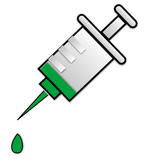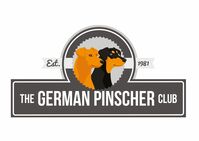Adverse Vaccine Reactions

This article is intended as an insight into potential vaccine related issues. For all veterinary concerns contact your vet in the first instance. Any dog owner noticing their dog displaying unusual behaviour or symptoms post vaccine should seek advice from their vet. The officers of our club are knowledgable on this subject and are happy to discuss German Pinscher specific vaccine reactions.
Adverse Vaccine Reactions 1,2,3
An adverse vaccine reaction (AVR) is an over response from the immune system and may result in a variety of symptoms and with varying degrees of intensity. Adverse vaccine reactions are rare and occur in a very small percentage of dogs - between 1-4%. There have been reports of a higher rate of incidence of AVR’s in German Pinschers with up to a third of the population experiencing strong reactions to vaccination. A Swedish Pinscher Club have provided a nice summary about reactions that can be downloaded here.
Causes 2,5
Research is being carried out in Sweden and Finland to establish a possible hereditary or genetic cause.
Other suggested causes include diet, unhealthy dog, stress, incompetent immune system, exposure to virus prior to or after vaccination, dog is receiving immunosuppressant medication e.g. steroids, inappropriate vaccine administration, dog is incubating an existing disease at time of vaccination.
The German Pinscher Club advises all new owners of puppies to ask their breeder if there has been any known adverse reactions in the puppy’s lineage. You should inform your vet of any known lineage vaccine reactions.
What to look out for 3,4
If a reaction occurs, it mostly develops after vaccination at twelve week’s of age, when the puppy has moved to its new family. Health complications from vaccination may also show at earlier or later treatments. The reaction is a sign of over response from the immune system. Typically, the signs of a reaction show 7-10 days after vaccination; time to onset of symptoms can vary however. The symptoms can also vary, from a minor bulge at the injection site, to unsteadiness, trembling, seizures, incontinence and, in the worst case unconsciousness.
Treatment 3,4
The most important and most effective is a treatment with cortisone, eventually assisted by a seizure relaxing compound, like diazepam in severe cases. The relaxing drug must not be used as a single treatment; only in connection with cortisone. The patient should not, under any circumstances be anaesthetised. The cortisone treatment aims to reduce the allergic reaction, and the eventual use of a relaxing substance may be necessary to reduce intense seizures. Occasionally, dogs have been given additional treatments like vitamin B, antibiotics or anti-vomiting substances. Patients receiving the correct treatment as per above, normally are free of symptoms and have recovered within 36 hours.
Suspected vaccine reactions can also be reported directly to the UK Veterinary Medicine Directorate here.
References:
1. 2ndchance/Ron Hines DVM PhD. 2016. Vaccination and Vaccine Reactions in Dogs and Cats. [ONLINE] Available at: http://www.2ndchance.info/vaccinereactions.htm. [Accessed 2 August 2016].
2. Hannes Lohi. 2016. Canine Genetic Studies. [ONLINE] Available at: http://www.koirangeenit.fi/english/projects/ongoing-research-projects/adverse-vaccine-reactions/. [Accessed 3 August 2016].
3. PinscherSektionen. Year of publication unknown.. Vaccine Reactions. [ONLINE] Available at: http://www.pinschersektionen.se/wp-content/uploads/2013/04/Vaccine_reactions1.pdf. [Accessed 25 August 2016].
4. Truth4Dogs. 2009. Clinical approaches to managing and treating adverse vaccine reactions. [ONLINE] Available at: http://www.dogs4dogs.com/blog/2009/08/06/treating-adverse-vaccine-reactions-by-jean-dodds-dvm/. [Accessed 3 August 2016].
5. Canine Health Concern. Year of publication unknown. Pet Vaccine Myths. [ONLINE] Available at: http://www.canine-health-concern.org.uk/PetVaccineMyths.html. [Accessed 3 August 2016].
